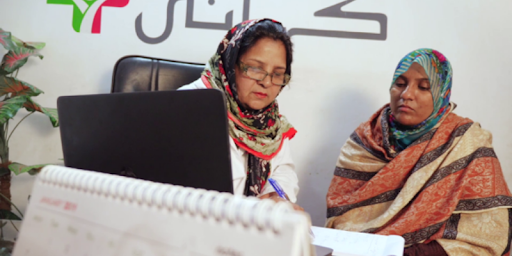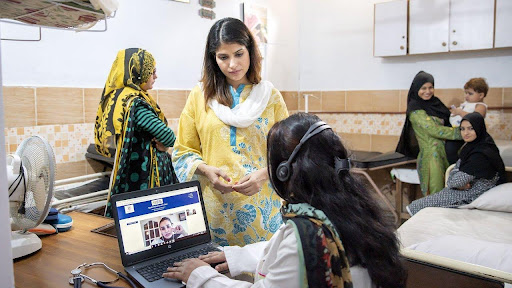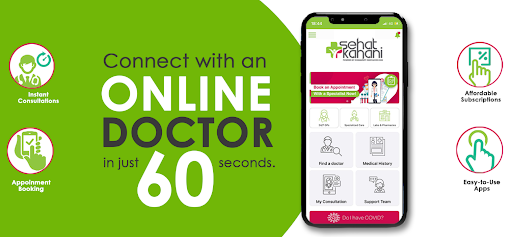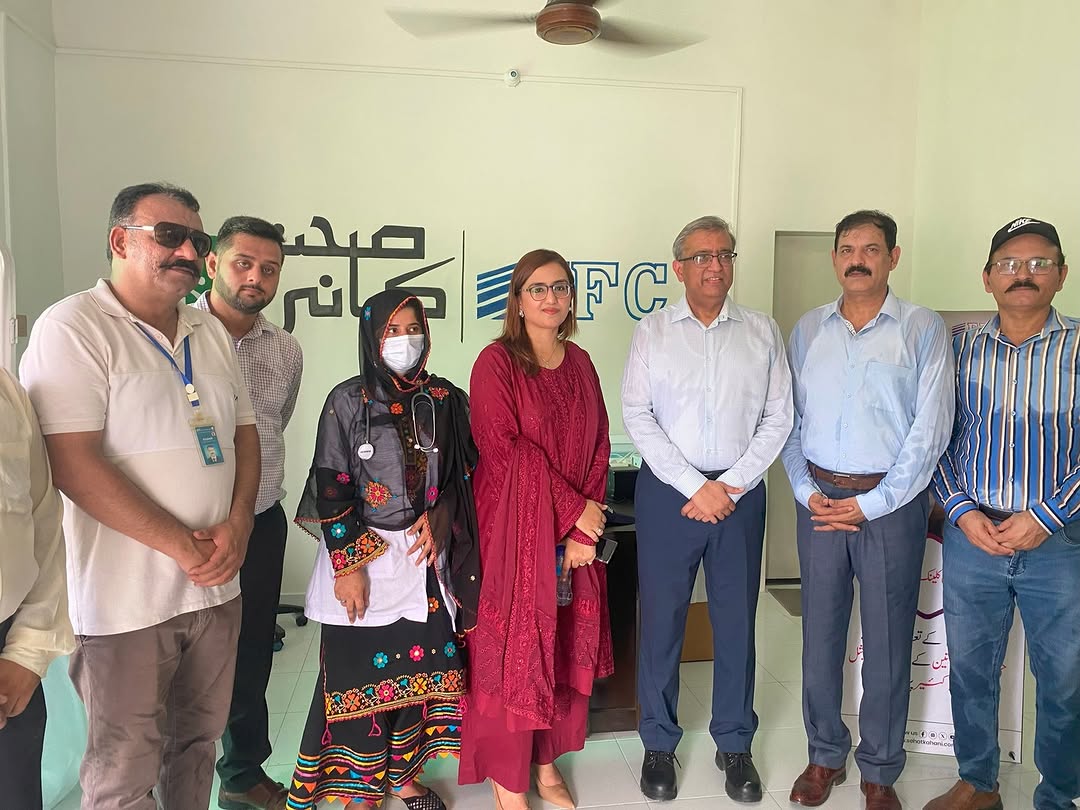
Introduction
The concept of telemedicine has been around for quite some time. Many organizations around the globe and in Pakistan have been established to give telehealth solutions to the masses. However, this concept has gained immense popularity after the pandemic of COVID-19 when other means of healthcare were not attainable for chronic and other illnesses. From that onwards, people realized the importance and usefulness of telemedicine which increased the interest of the common masses, investors, and healthcare professionals of Pakistan in it as well. This increasing interest over the past three years has transformed the healthcare industry of Pakistan to a notable extent.
The following 5-minute read will enlighten you about the concept of telemedicine along with enlisting how telemedicine has evolved the healthcare system in Pakistan.
What is telemedicine?
Telemedicine, which allows for phone or video consultations between a patient and their doctor, is advantageous for both convenience and health. In present times, a vast majority of healthcare professionals are prioritizing virtual healthcare visits over in-person visits.
Even for the masses that are not literate, advancements in technology are assuring easier and easier means to access healthcare. Telemedicine organizations work to make their apps and websites as simple as possible using simple words and common illustrations to ensure that everyone can use them and can request an online consultation with the therapist, or doctor of choice.
The true benefit of telemedicine today is the ease it provides both patients and practitioners by eliminating the need for an in-person visit to receive or give medical advice or treatment. In comparison to the expense of waiting to see a doctor or other healthcare professional, telemedicine visits are also cost-effective.
The ability to schedule telemedicine sessions after any necessary laboratory tests or vital sign monitoring is an added convenience. In actuality, doctors have been using telemedicine for a long time, but not under this nomenclature. While this might be the case, the widespread use of broadband internet technology has reduced the cost and increased the accessibility of both audio and video calls, making them a workable replacement for the current system.

Ways in which telemedicine is evolving the healthcare system of Pakistan
Following are some ways in which telemedicine is evolving the healthcare system of Pakistan;
Enabled specialized care for remote areas
The healthcare accessibility statistics of Pakistan are unfortunately poor. 50% of the population in Pakistan does not have access to primary healthcare services let alone specialized healthcare. Telemedicine enables patients located in remote areas of Pakistan to access specialists for their treatment. This is a big evolution for the healthcare sector of Pakistan as Pakistani people don’t have to choose the doctors they are close to, instead, they can consult whoever suits them the best.
Decreased overall expenses of healthcare
Telemedicine utilizes the advancements of technology and digitalization which overall helps to decrease healthcare costs. Costs for information-intensive procedures can be reduced by up to 90% by digitizing them. Additionally, it causes major time savings, which enables healthcare professionals to free up resources and concentrate on their primary healthcare goals.
A typical telemedicine visit has eliminated the cost of travel, rent of clinics, and clinic maintenance costs making it more beneficial for both the healthcare providers and the patients of Pakistan.
Increased automation and digitalization nationwide
Telemedicine provided a great opportunity for the automation and digitalization of the healthcare sector nationwide. As the famous saying goes “necessity is the mother of invention”, the need for remote access to healthcare in Pakistan the times of the COVID-19 pandemic boosted the digitalization of healthcare which is now being effectively utilized everywhere including the remote areas of Pakistan. In the moment of need, both the healthcare providers and the common masses of Pakistan learned the use of digital platforms for the delivery and access to healthcare. Thus it is safe to say that telemedicine has evolved healthcare towards better technology.
Delivered comfort and convenience to patients
The second most important factor behind the popularity and growth of telemedicine in Pakistan after increased accessibility is the comfort and convenience it brings to the patients. Telemedicine has enabled Pakistani patients to get online consultations from the comfort of their homes. Using telemedicine, patients do not have to take half days from their jobs or institutions. This convenience has caused a significant decrease in the number of patients skipping their appointments due to work or other commitments. The increase in the total number of consultations also improved the overall revenue for the healthcare sector.
Increased working opportunities
Pakistan to date is a patriarchal country in which it is expected from women, especially after marriage, to stay back at home and take care of the household and children. This ideology hinders the career of thousands of women and lets their abilities, practice, and experience go to waste. Even at times, it is not about patriarchy or gender assigned duties, but just that the roles and responsibilities of women as a mother overwhelm and overburden them which leads them to take a break from their full time careers. Telemedicine in Pakistan has provided flexible working opportunities to such women so that their talent doesn’t go to waste.
Not only married women, but telemedicine has also provided working opportunities to the elderly, disabled, and doctors with chronic illnesses as by utilizing telemedicine, doctors and healthcare professionals can still provide their services without having to travel or commute to the healthcare facility, that too in flexible working hours.
Telemedicine has been providing various new working opportunities to the masses of Pakistan. At most telemedicine clinics, “providers” are required. These providers connect the patients of remote locations to their respective doctors and specialists. Another personnel who is commonly required in telemedicine is a doctor network moderator or a doctor network manager. Positions like these increase working opportunities for people which holds the potential of improving not only the healthcare industry but the overall economy of Pakistan.

Established new industry in Pakistan
Telemedicine is believed to be setting up a new industry in Pakistan. It can be observed that telemedicine and overall telehealth platforms are increasing to a great extent especially after COVID-19 as the pandemic increased the interest of people in seeking virtual consultations. This new working industry has and is expected to boost the economy of Pakistan.
Decreased disease susceptibility
Illnesses or disorders that patients develop during their visit to a hospital that was originally not there are called hospital-acquired infections (HAIs) or Nosocomially acquired illnesses. Hospitals are places where a lot of sick people congregate, and the combination of their sneezes, coughs, and even breaths can help spread germs.
No matter how careful you are, the chances of catching an infection from the hospital remain significant. Since telemedicine limits people from visiting the hospital unless necessary, it also restricts the spread of diseases among patients and their caretakers or attendants.
Increased learning opportunities for healthcare professionals
The healthcare profession is tough and healthcare workers are usually occupied by their busy schedules. However, with the evolving industry, especially when Pakistan is trying to transform its healthcare industry for the better, professionals need to take time for their personal and professional growth. This progress can be made through different courses, training programs, and even by attaining further advanced medical degrees. But for all of these actions, additional time is required. Telemedicine in Pakistan has helped its doctors save the time and energy which is utilized in the commute which enable them to use their time more efficiently for further learning to grow themselves professionally.
Gave better means for chronic care
As opposed to acute care, which is focused on short-term or severe illnesses with limited durations, chronic care refers to medical care that tackles pre-existing or long-term illnesses. Asthma, diabetes, emphysema, chronic bronchitis, congestive heart failure, cirrhosis of the liver, hypertension, and depression are examples of chronic medical diseases. Chronic illnesses can cause disability if they are not treated well.
Since chronic illnesses require long-term care, people tend to neglect them. The added cost of continued treatments, diagnostic tests, healthcare visits, and doctor appointments tends to agitate the patients as well as the caretakers. Both individuals and medical professionals continue to place a high focus on the management of chronic diseases. Telemedicine in Pakistan has made it easier for people to access the care they need. If a patient doesn’t see their doctor frequently, their health may deteriorate. Heart conditions, diabetes, hypertension, and other conditions can all be efficiently managed using telemedicine without having to go to the doctor every month.

Role Sehat Kahani is playing in evolving the healthcare industry
Sehat Kahani, a well-known digital healthcare platform based in Karachi, has made it a priority to guarantee that everyone has access to high-quality healthcare since 2017. Sehat Kahani employs more than 7000 medical specialists, all of whom are quite skilled at providing online consultations. The Sehat Kahani mobile application is being used by over 575 enterprises and over 1 million customers. With 48 E-clinics spread out over the nation, Sehat Kahani also possesses Pakistan’s largest telemedicine network.
Being the largest telemedicine network, Sehat Kahani has transformed the healthcare system of Pakistan to a significant extent which reflects in the increased number of online consultations Sehat Kahani has conducted over the years. Having the mission to democratize healthcare access to all by utilizing digitally enabled healthcare professionals and services, Sehat Kahani has always worked to fulfill the healthcare requirements of the people in remote areas. For that, Sehat Kahani not only utilizes its mobile app but also has a vast network of e-clinics in remote areas to ensure that the residents of difficult-to-reach areas can also access specialized care.

Conclusion
Telemedicine allows for the provision of medical care to patients in distant locations and has enormous potential in developing nations like Pakistan. Telemedicine helps to form global networks of healthcare specialists, overcomes logistical challenges, and supports underdeveloped healthcare systems. For low- and middle-income countries, the adoption of telehealth systems is still not feasible due to the high implementation costs.
In Pakistan, telehealth interventions such as mHealth, eHealth, telemedicine, and telepharmacy have been available for the past 20 years. To fully transform the healthcare system of Pakistan and to reap notable benefits from telemedicine, further advancements in technology and telecommunication coupled with significant investments are required. Advancements in artificial intelligence in the future will help in boosting the operations of telemedicine which will also help in evolving the healthcare system of Pakistan.




